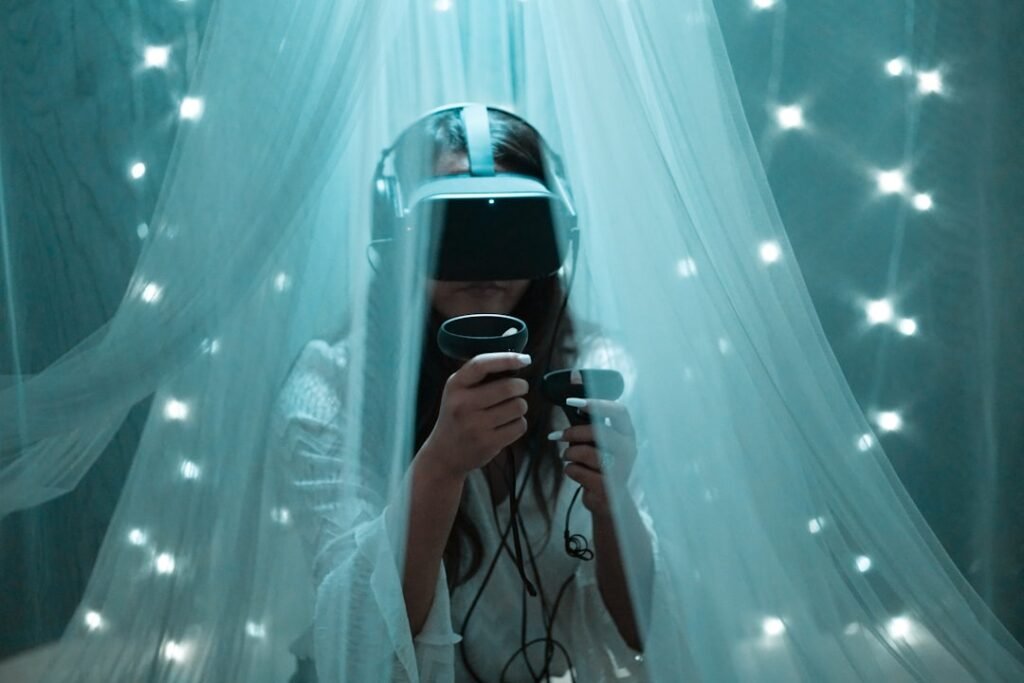Now Reading: The Art of Gaming: Why It Deserves Recognition
-
01
The Art of Gaming: Why It Deserves Recognition
The Art of Gaming: Why It Deserves Recognition

When I reflect on the evolution of gaming, I am often struck by how far it has come from its humble beginnings. In the early days, gaming was largely seen as a niche hobby, confined to a small group of enthusiasts who gathered around arcade machines or huddled over home consoles. I remember the excitement of playing games like “Pac-Man” or “Super Mario Bros.” in dimly lit arcades, where the sounds of beeping and buzzing filled the air.
These experiences were often shared among friends, creating a sense of community that was both intimate and exhilarating. However, gaming was still viewed with skepticism by many, often dismissed as a frivolous pastime. Fast forward to today, and gaming has transformed into a global phenomenon that permeates every aspect of our lives.
I find it fascinating how gaming has transcended its original boundaries, becoming a multi-billion-dollar industry that attracts players of all ages and backgrounds. The rise of mobile gaming has played a significant role in this transformation, allowing anyone with a smartphone to access a vast library of games at their fingertips. As I scroll through social media, I see countless friends and family members sharing their gaming experiences, whether it’s a casual match in “Candy Crush” or an intense battle in “Fortnite.” This shift has not only changed the perception of gaming but has also made it an integral part of modern culture.
The Impact of Gaming on Culture and Society
Immersive Storytelling and Exploration of Themes
This level of engagement fosters a unique connection between the player and the story, allowing me to explore themes of morality, identity, and human experience in ways that traditional media cannot. The interactive nature of gaming enables a deeper exploration of these themes, making the experience even more impactful.
Gaming as a Platform for Social Interaction
Moreover, gaming has become a platform for social interaction, bridging gaps between people from diverse backgrounds. I have experienced firsthand how multiplayer games create communities that transcend geographical boundaries. Whether I’m teaming up with friends or meeting new players online, these interactions foster friendships and collaborations that might never have occurred otherwise.
A Universal Language and a Call for Representation and Inclusivity
In many ways, gaming has become a universal language, allowing individuals to connect over shared interests and experiences. This cultural shift has also led to discussions about representation and inclusivity within games, prompting developers to create more diverse characters and narratives that resonate with a broader audience.
The Artistic Merit of Video Game Design and Storytelling

When I consider the artistic merit of video game design and storytelling, I am often reminded of the intricate craftsmanship that goes into creating these immersive experiences. Video games are not merely entertainment; they are a form of art that combines visual design, music, narrative, and interactivity. As I play through beautifully crafted landscapes in games like “The Legend of Zelda: Breath of the Wild,” I am constantly amazed by the attention to detail that developers pour into their work.
Each pixel, each note of the soundtrack, contributes to an overall experience that can evoke powerful emotions. The storytelling in video games is equally compelling. I have encountered narratives that challenge my perceptions and provoke thought long after I’ve put down the controller.
Games like “The Last of Us” or “Life is Strange” tackle complex themes such as loss, love, and the consequences of our choices. These stories resonate with me on a personal level, often prompting me to reflect on my own life experiences. The ability to engage with a narrative actively—making choices that influence the outcome—adds a layer of depth that is unique to this medium.
As I witness the growing recognition of video games as an art form, I feel a sense of pride in being part of a community that appreciates the creativity and innovation behind this evolving landscape.
The Rise of Professional Gaming and Esports
The rise of professional gaming and esports is another fascinating aspect of the gaming evolution that captivates my attention. What was once considered a pastime for hobbyists has now transformed into a legitimate career path for many individuals. I remember watching my first esports tournament online; the atmosphere was electric as players competed for not just glory but substantial cash prizes.
The level of skill and dedication displayed by these professional gamers is nothing short of impressive. It’s inspiring to see how individuals can turn their passion for gaming into a full-fledged career. As esports continue to gain traction, I find it intriguing how they have created new opportunities for sponsorships, streaming platforms, and even collegiate programs dedicated to competitive gaming.
Universities are now offering scholarships for talented gamers, recognizing their skills as valuable assets. This shift has not only legitimized gaming as a profession but has also opened doors for diverse career paths within the industry—from game development to marketing and event management. As I watch this phenomenon unfold, I can’t help but feel excited about the future possibilities for aspiring gamers who dream of making their mark in this dynamic field.
Gaming as a Platform for Creativity and Innovation
Gaming serves as an incredible platform for creativity and innovation, allowing individuals to express themselves in ways that were previously unimaginable. As I explore various games, I am continually amazed by the creativity displayed by both developers and players alike. Many games now incorporate user-generated content, enabling players to design their own levels, characters, or even entire worlds.
This level of interactivity fosters a sense of ownership and encourages players to unleash their creativity. I have personally dabbled in creating mods for my favorite games, which has been an incredibly rewarding experience. The ability to modify existing content or create something entirely new allows me to engage with the game on a deeper level.
Additionally, platforms like “Roblox” or “Minecraft” empower players to build their own experiences from scratch, showcasing their creativity to others around the world. This democratization of game design not only nurtures innovation but also cultivates a vibrant community where ideas can flourish. As I witness this creative explosion within the gaming landscape, I am filled with optimism about the future potential for artistic expression through this medium.
The Future of Gaming: Challenges and Opportunities for Recognition

The Stigma Surrounding Gaming
One significant challenge is the ongoing stigma surrounding gaming as a legitimate form of entertainment or art. Despite its widespread popularity and cultural impact, there are still those who view gaming as a trivial pursuit rather than a serious medium worthy of recognition.
Advancements and Opportunities
As someone who has experienced the profound effects of gaming on my life, I feel compelled to advocate for its acknowledgment as an art form that deserves respect. However, with challenges come opportunities for growth and recognition. The increasing integration of technology—such as virtual reality (VR) and augmented reality (AR)—is poised to revolutionize the way we experience games. These advancements offer exciting possibilities for immersive storytelling and gameplay mechanics that can further elevate gaming as an art form.
A Bright Future Ahead
In conclusion, as I reflect on my journey through the world of gaming, I am filled with hope for its future. The evolution from niche hobby to mainstream phenomenon has opened doors for creativity, innovation, and cultural impact that continue to shape our society. As we navigate the challenges ahead, I remain optimistic about the opportunities for recognition and appreciation that lie on the horizon for this dynamic medium.
Gaming enthusiasts often debate whether gaming should be considered an art form, with many arguing that the creativity and storytelling in games rival that of traditional art forms. However, it’s essential to consider the impact of gaming on mental health. According to a recent article on gamers.co, excessive gaming can have negative effects on mental well-being, highlighting the importance of moderation and balance in gaming habits. It’s crucial to understand the potential risks associated with gaming and take steps to prioritize mental health while enjoying this popular form of entertainment.



























